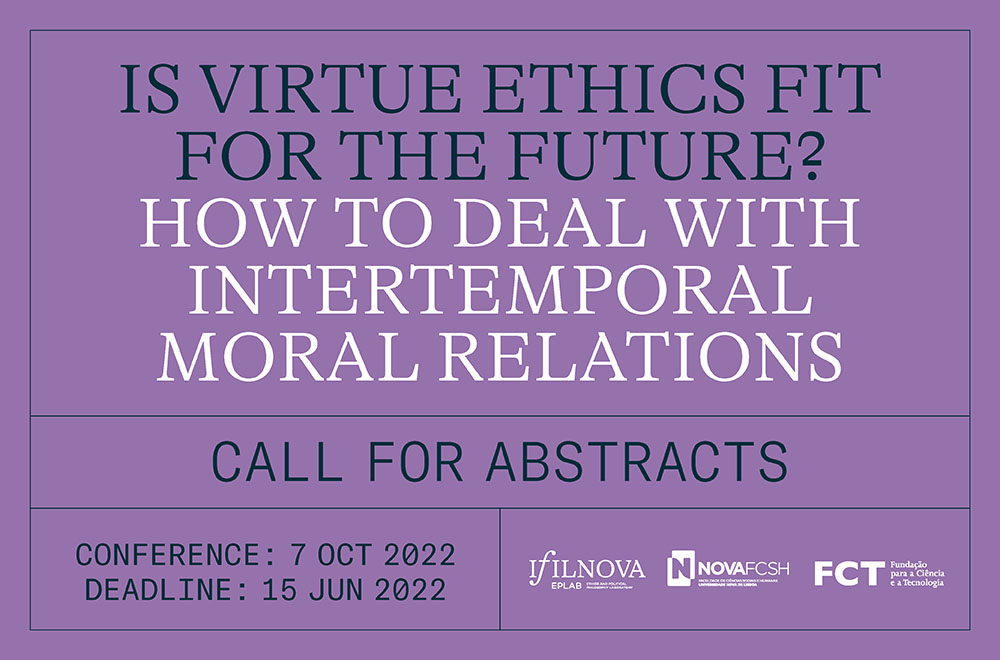15/03/2022

Venue
Colégio Almada Negreiros
Keynote Speaker
Sophie Grace Chappell (The Open University)
Convenors
Susana Cadilha (IFILNOVA) and Sofia Guedes Vaz (IFILNOVA/Sociedade de Ética Ambiental)
Date
October 7, 2022
IFILNOVA’s based project PRESENT DEMOCRACY FOR FUTURE GENERATIONS focuses on the possibility of reconfiguring certain key concepts originated especially in modernity (e.g., rights, representation, sovereignty, etc.) in order to to assess their viability in a world order that must expand the time horizons of individual and collective decision-making to solve some of its most pressing problems. Such concepts and institutions tend to emerge in debates about intergenerational justice or about the priority of the long term typically within a deontological or a utilitarian framework – inquiries into the existence of moral duties towards future generations, the welfare of future persons, and the equal consideration of the interests of future people provide good illustrations of such general preference for deontology and utilitarianism. This workshop aims at discussing an alternative framework, namely, the possible contributions of virtue ethics as a normative theory fit for the future.
The landscape of intergenerational questions includes a strong moral topography as it is obvious and clear that our present actions will affect life and health of future generations. This assessment is no longer doubtful or even problematic, but it opens a discussion on its multiple normative possibilities.
Since virtue ethics focuses on the agent and on character formation, it is the agent herself that is the subject of her own morality, which implies some sort of timelessness where the future might be included by default. In this workshop we aim to tackle a morality for the future from the perspective of virtue ethics. Proposals might answer the following or similar questions:
• Are virtue ethics well-positioned to deal with time-related moral issues?
• Would issues with impacts in the future such as climate change or biodiversity be better served by a virtue ethics approach?
• Which virtues or new virtues might be more appropriate for dealing with the future?
• Might the self-centeredness of virtue ethics be an impediment to deal with the future?
• How does virtue ethics deal with non-anthropocentric concerns for the future
Submission Instructions
This call for abstracts invites 500-word (maximum) proposals for presentations in any issue related to the topic. Proposals prepared for blind review should be submitted via email to susanacadilha@fcsh.unl.pt / sofiavaz@fcsh.unl.pt by June 15, 2022.
Decisions will be announced by July 15, 2022. The workshop will take place in Lisbon on the 7th of October 2022.
NOVA University Lisbon – School of Social Sciences and Humanities, Lisbon

